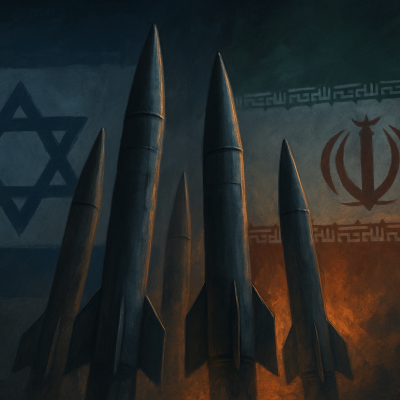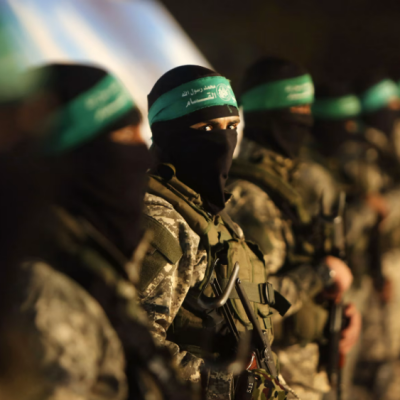Introduction:
Currently, US President Joe Biden is on official visits to Israel and Saudi Arabia, coinciding with convening of the Gulf Cooperation Council (GCC) summit in Riyadh, in the presence of the leaders of the GCC countries, as well as the leaders of Egypt, Jordan and Iraq.
As announced, Biden’s visit to Israel focuses on the developments and future of the Palestinian cause, as well as the development of Israeli security moves in the Middle East, in coordination with the US and Sunni Arab countries that are becoming increasingly close to Israel at the present time, in exchange for the current threats facing Arab countries in the region.
As for the Riyadh meeting, in addition to what Biden announced that he will address the human rights issue in the region, Biden’s visit will focus on reaching specific decisions on the global energy and food crisis, the Iranian nuclear agreement and developments in the joint regional defense system against Iran.
The US hopes to see an increase in OPEC production in the coming weeks. Biden is expected to pressure other Gulf producers to pump more oil. The OPEC+ alliance, which includes Russia, meets on August 3.
Regional missile defense capabilities will also be discussed, as Biden seeks to integrate Israel into a new axis in connection with shared concerns about Iran. In this regard, Biden will hold bilateral talks with the leaders of Egypt, the UAE and Iraq before participating in the broader summit, where he will clearly define his vision and achieve a clearer and more specific strategy for US participation in the Middle East.
Considerations:
- The US faces a real conflict between Western strategic values such as issues of democracy, freedoms, human rights, law enforcement, support for alliances, and others, and interests such as the global oil crisis and the position of linking oil to the US dollar and ensuring control over the security of shipping lanes, arms trade and restoring the trust of the US Arab allies on Washington, especially the Gulf states, Egypt, Jordan and Iraq.
- While Biden is visiting Riyadh, Putin is visiting the gathering of Iran and Turkey in Tehran, in connection with the Astana Agreement and the Syrian crisis. However, Biden’s visit is certainly pressing against the direction of Biden’s visit.
- It is Biden himself who visits Riyadh, at a difficult time, but it represents an opportunity to gather the leaders of the most important Arab countries.
- Riyadh and Abu Dhabi have been frustrated by US conditions on arms sales and their exclusion from indirect talks between the US and Iran aimed at reviving the 2015 nuclear agreement, which they see as flawed by not addressing regional concerns about Tehran’s missile program and behavior.
- The strong desire of the Gulf states, especially Saudi Arabia, UAE and Bahrain, to clarify and define the US position on the security of the Gulf region, which the Gulf states see as inconsistent with the nuclear agreement Iran, at a time when Israel sees the security of the Gulf against Iran as a major part of the regional security of the Middle East and of the international security system.
- Biden’s visits to Israel and Riyadh and his meeting with Arab leaders are in the interest of Israel and the Gulf, but they are considered provocative and distinct from the point of view of Russia, China and Iran.
Challenges confront Biden’s moves in the Middle East:
- Increasing domestic American, European and Middle Eastern public opinion against Biden in connection with the Russian-Ukrainian war, with the increase in global oil prices, the food crisis and inflation.
- Increasing domestic American pressure on Biden on human rights issues in the Arab region, reminding him of his electoral statements and promises that targeted Saudi Arabia in particular.
- I see that the real issue is between Biden and Mohammed bin Salman and not between Washington and Riyadh. Despite the US-Saudi strong relations compared to the farther distance noticed between the US and UAE in term of the US-UAE current relation.
- The huge efforts and long time needed for Saudi-Israeli normalization.
- The emergence of what might be called “Ismaili normalization” between Iran and GCC states, certainly at the expense of “Abrahamic normalization”. This is related to the growing competition between the United States (the sponsor of Abrahamic normalization) and China (which may sponsor the Ismaili normalization).[1]
- The growing intensity of Gulf- Arab mistrust towards the United States.
- The nature of relations between Arab and Islamic countries and between Arab and non-Arab countries make the idea of the “Arab NATO” or the “Middle Eastern NATO” very difficult, compared to the bilateral military and security cooperation between the United States and Arab countries as bilateral cooperation is faster in action and more effective in impact.
Conclusion:
- The US is to ensure that China and Russia will not fill the security vacuum in the Middle East, ensuring that the US is the only guarantor for the Gulf states’ stability, security, and prosperity.
- The US maximizes the Arab- Israeli normalization unifying them as its allies, not only in front of Iran, but also in front of Russia and China, which is expected to support Iranian-Gulf / Arab normalization, as a counter trend.
- Opportunities for Israel to use force against Iran to strike its nuclear reactors are increasing, which was declined by former US leaders (Bush, Obama and the Pentagon during the Trump presidency).
Sayed Ghoneim, Major General (retired) of the Egyptian Armed Forces
Ph.D. in political Science, Fellow, Nasser Higher Military Academy, Egypt
Chairman, Institute for Global Security & Defence Affairs (IGSDA-Online), UAE
[1]) “Ismaili normalization” and “Abraham normalization”:
About a year ago I put forward the term “Ismaili normalization” in connection with the term “Abrahamic normalization” with intention of making a comparison. The Abrahamic normalization includes different races and religions in connection with the name of whom we called “Prophet Abraham, the father of the Prophets”, and his descendants came from various races, including the Arabs and the Israelis. I mean here by “Ismaili normalization” a specific race which is the Arab and a specific religion, which is Islam, meaning that it is the normalization supposed to exist first between Arab and Islamic countries, including Iran and the Gulf states. However, the seriousness of the matter, according to my vision, is that the existence of the Abrahamic and Ismaili normalizations may come within the framework of US-China rivalry, as the US is the sponsor of Abrahamic normalization between the Arabs and Israel, and China will be the counterpart sponsor who tries to push for normalization between Iran and the Arabs, especially the Gulf states. In this case US and China are to mobilize the most important Arab and Islamic countries through the type of normalization that each of them aims to support, and the result is that the two normalizations will be in a competitive position.





